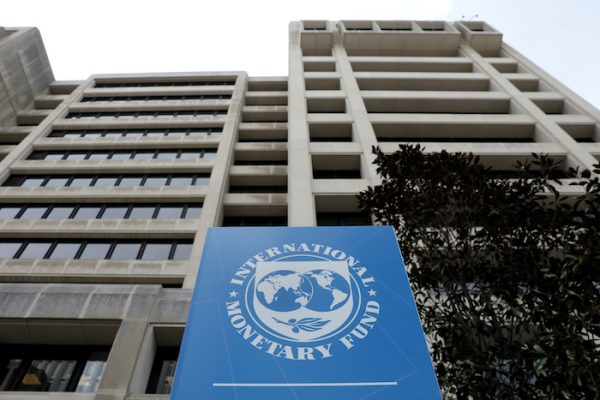Take the World Bank. Although its widely voiced promise was that it would lend US$160 billion to help the developing world deal with the crisis, it turns out not a penny of this represents additional lending — it is all money the Bank would have disbursed anyway.
Granted, it is accelerating some disbursements and offering a temporary moratorium on debt service payments from poor countries. But given the scale of this crisis, one might have expected more.
The basic problem is that the World Bank’s capital is down to 22 per cent of its loan book and, for prudential reasons, it cannot fall below 20 per cent. One way out would be for the Bank to seek more capital, which the Trump administration has in the past agreed to provide. But these days it’s hard to imagine the US government looking kindly on such a request.
As President Trump told the UN General Assembly last September, ‘The future does not belong to the globalists. The future belongs to patriots’. From Trump’s point of view, the IMF and the World Bank are globalist by nature. They also fail his value-for-money calculation: US influence in these institutions is too small, he thinks, to justify the cheques written by the United States to keep them going.
This kind of thinking has been plainly on display in the way the United States has limited the role of the IMF in managing the global crisis. The most straightforward way for the IMF to support its members is to provide international liquidity in the form of additional Special Drawing Rights (SDRs). These SDRs, credited to the accounts of IMF member countries, are exchangeable for the five basket currencies: the US dollar, euro, sterling, yen and renminbi.
Creating SDRs formed part of the IMF’s response to the global financial crisis in 2009, but this time around the idea was quashed by US Treasury Secretary Steve Mnuchin. To be fair, there is one good reason why SDR creation may not have been the right tool: SDRs are allocated according to members’ quotas at the IMF, meaning some 70 per cent of the extra liquidity would have gone to rich countries who need it least. But two other lines of thought were likely more influential in the US decision.
The first is that the more SDRs there are out there, the more prominence the IMF has as an institution. The United States would rather keep the IMF dependent on resources that it has to borrow from rich countries, enhancing US leverage and keeping the Fund on a short leash.
The second is that giving the SDR prominence plays straight into China’s agenda. In 2009, then governor of the People’s Bank of China Zhou Xiaochuan pushed for the creation of a ‘super-sovereign reserve currency’ to take over the US dollar’s central role in the international monetary system. Zhou argued that the SDR should be the seed from which such a currency might grow.
In the Trumpian worldview, what’s good for China is not good for the United States. Keeping the dollar as the centre of the international monetary system has huge strategic value for Washington. It keeps China dependent on a currency it has no power to print.
Multilateralism as we have known it since the Second World War has only ever been a set of institutions underpinned by US power. Multilateralism is useful to the United States so long as those institutions — including the IMF and the World Bank — serve its interests.
President Trump’s decision to withdraw from the World Health Organization is the starkest evidence yet that Washington no longer believes this condition is being met. Equally significant, though less visible, is the United States hobbling of the role that the IMF and World Bank can play in easing the economic pain of COVID-19. The anchor on which post-war multilateralism has depended is coming loose.
How much weaker might this anchor get? We should know more in early November.
David Lubin is head of emerging markets economics at Citigroup. He is also an associate fellow of the Global Economy and Finance programme at Chatham House.
This article is part of an EAF special feature series on the novel coronavirus crisis and its impact.

